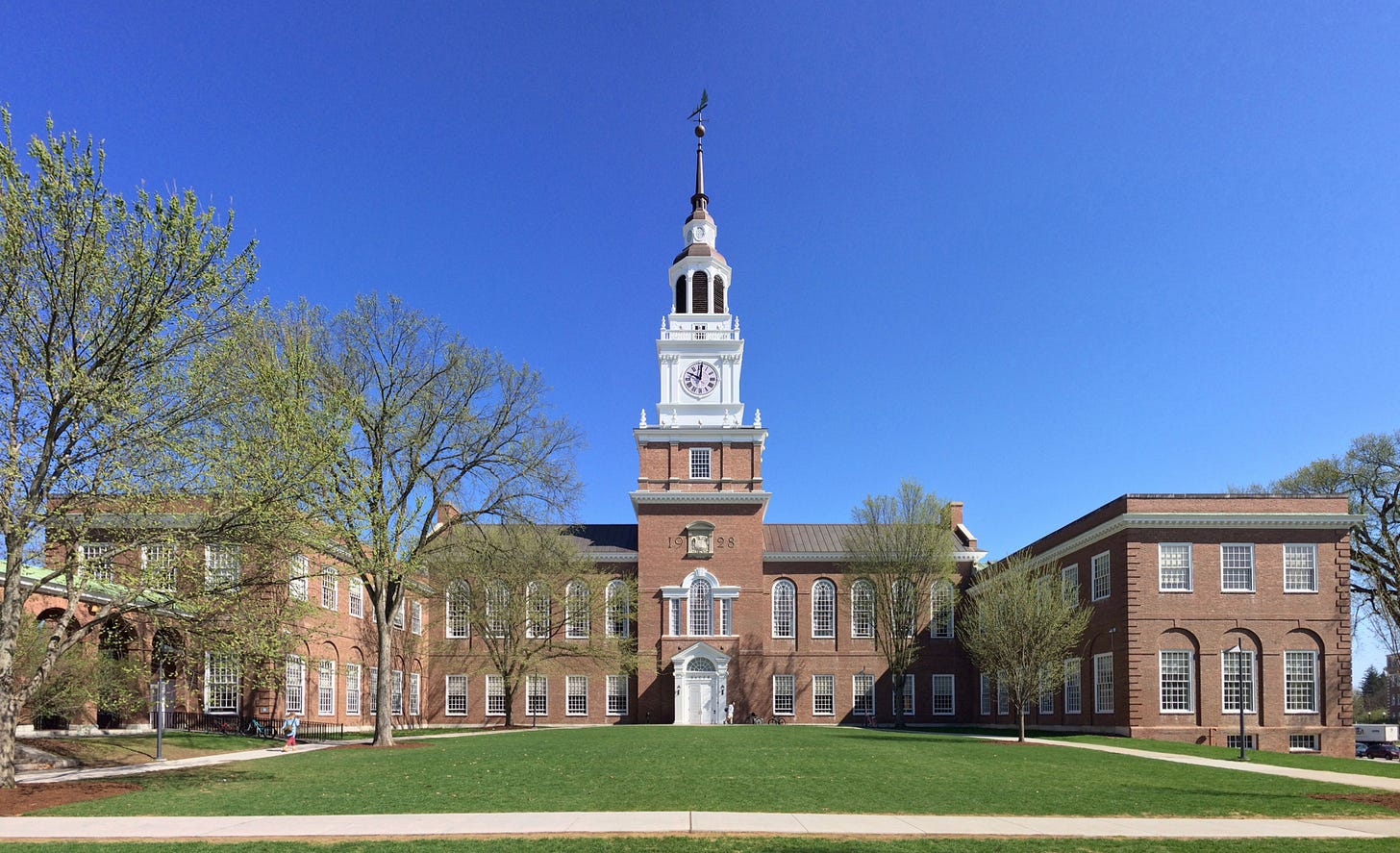Perverse Incentives of Gun Storage at Dartmouth
The decision-makers should've consulted Bastiat
Inspiration can strike in the most unexpected places. Case in point: the idea for this article began while I was roaming Walmart looking for a fan. Before I found my sleep aid, I ran into the section dreaded by gun-control advocates. I casually surveyed the rifles without any particular interest—the Upper Valley is about as safe as the world gets—but noticed that, unlike many commodities in 2022, the prices were not as high as I anticipated.
As my mind wandered, as one’s does, I wondered if it would be permissible for me to store a firearm while attending Dartmouth College. After all, I thought, New Hampshire is a constitutional carry state, I’m 22 years old, I’m a resident of the Granite State, and I have some disposable income. Live Free or Die!
My curiosity piqued, I consulted the school’s handy Weapons, Firearms, Fireworks, and Projectiles Policy. I was not shocked to learn that private storage of legally-owned firearms “is expressly prohibited” in college or college-owned housing; students’ firearms and ammunition “must be stored in the gun room at [the Department of Safety and Security].”
Even as a libertarian, this policy, at a private institution, strikes me as eminently reasonable; the last thing a college wants is young adults haphazardly storing inherently lethal tools in easily-accessible places. Instead, the college wants and provides an avenue for safely storing weapons so that they might be checked out and used at the range, the Second College Grant, or some other approved-of expedition.
Fair enough!
So, where do the perverse incentives come into play? Part IV, Section B, to be precise: “students… must submit a copy of the Hunter Safety Certificate [or evidence of successful completion of a certified Safe Weapon Handling Program] to be able to register and store weapons with DOSS.” By including this provision, the college thinks it’s incentivizing students to learn weapons safety before purchasing and storing a weapon. To some marginal (negligible) degree, I’m sure this policy does encourage this beneficial outcome.
That’s what’s seen and intended. Now, as good amateur economists, let’s consider, in the immortal words of Frederic Bastiat, what’s unseen and unintended:
The policy forbids students from securing weapons safely with DOSS if they have not gone through the often times onerous and expensive—making the policy regressive— Hunter/Handling certification processes in their states of origin. In seeking to make campus safer, the college has, according to its own logic, made the student body less safe by perversely incentivizing students to not store their weapons with DOSS.
If the decision-makers at Dartmouth seriously believe that students’ private, personal possession and storage of firearms makes us all less safe, then they must nix Part IV, Section B of our Weapons, Firearms, Fireworks, and Projectiles Policy.




